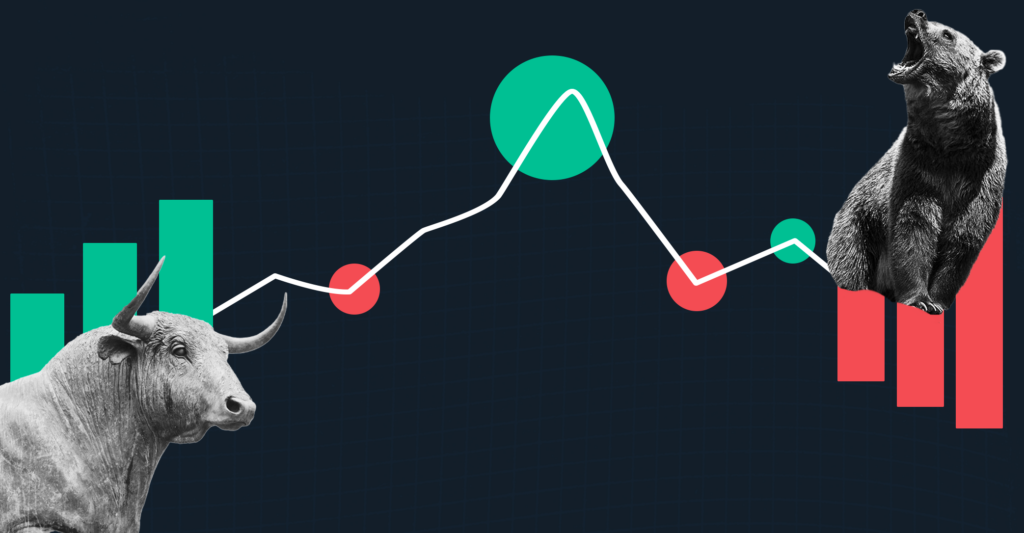What is a stock?
You must have heard the term stocks quite frequently. They are a form of financial securities that represents a part-ownership in a company. Stocks let you own a part of a company. They also give you specific rights as a stockholder. When you own a stock you get a certificate, proving your ownership. You store this certificate digitally in your demat account. Investors buy stocks to sell them for profit. When a company grows in value, its stock price usually rises too.
What is a share?
A share represents a single unit of stock. It is the smallest denomination in which the ownership of the company is represented. We can understand this better with an example. If DEMO Capital has 10,000 stocks available and you own one share, you have 0.01% of the company. As the price of each share increases, your investment value will increase as well.
Stock vs Share: Key Differences

Point of Comparison
- Stocks: Stocks show part ownership of a company. They are financial tools linked to one or more organizations.
- Shares: A share is one unit of stock.
A stock is a financial instrument that shows partial ownership of a company.
Denomination
- The value of stocks can differ.
- Each share of a company has the same value.
Paid-up Value
- Stocks are always fully paid up.
- Shares may be partially paid up or unpaid.
Original Issue
- Stocks are not part of the original issue; shares convert to stocks later.
- Shares are part of the original issue.
Types
- Stocks are mainly divided into two types: common and preferred.
Shares fall into different categories like growth, value, income, and blue-chip. They are also divided into common shares and preference shares.
Types of Stocks
Stocks can be divided into further types. Let’s have a look at the most popular types of stocks, that are commonly used in the stock market.
Common Stock: Common stocks give investors voting rights. They can vote on key company decisions. They also offer the chance of dividend yields in some cases.
Preferred Stock: All companies issue common stock, but some also offer preferred stock. Preferred stocks guarantee dividend payments to their stockholders. In a situation of the company getting liquidated, preferred stockholders would be compensated.
Large-cap stocks: These are shares of companies with a strong market presence. They make up a big part of the market capitalization. Usually, these are stocks of companies that have more than 20,000 crores of market cap. Large-cap stocks have been a safe investment option.
Mid-Cap Stocks: Mid-cap stocks have a market cap between 5,000 crores and 20,000 crores. They have a higher growth potential when compared to large-cap stocks. They are also more volatile in nature when compared to large-cap stocks.
Small-Cap Stocks: They are much more volatile than mid-cap stocks. Their market cap is less than Rs. 5,000 crores.
Growth Stocks: A growth stock is a stock that grows at a higher average than the market. These companies focus on reinvesting their profits. They put a large part of their earnings back into the business, which means they pay fewer dividends.
Blue-chip stocks: These are top large-cap stocks known for their strong reputation. They usually offer high dividend yields. Also, they can provide good returns on investments over time.
Types of Shares
Shares can be broadly categorized into two types: Equity or Common Shares and Preference Shares.
Equity or Common Shares: These are the basic types of shares that companies issue. They are highly traded in the market and usually provide voting rights to investors. Equity shares can be further classified based on their definition, returns, and share capital.
Preference Shares: As the name suggests, these shares are preferred over any other share. Preference shareholders are also prioritized in the event of liquidation.
Benefits and Risks Involve While Investing in the Stock Market
The benefits and risks of investing in the stock market are aplenty. Recent trends suggest that the benefits exceed the risks. Investing in the stock market has become a key way to grow your wealth today. Investing in the stock market has many benefits. One major advantage is diversification. You can spread your wealth across different options like stocks, mutual funds, ETFs, government bonds, non-convertible debentures, and even futures and options trading.
The primary risk associated with the stock market is volatility. Stock market is usually volatile and if not handled carefully, can result in losses. Stick to expert advice when investing or trading in the stock market. Avoid random stock tips.
How do people make money in stocks?
People make money in stocks by buying and selling them. Delivery trading means buying stocks and holding them until their prices go up. Then, you sell them to make a profit. Apart from simple buying and selling, there are other ways people make money as well. Intraday trading is a popular way to earn money. Traders buy stocks and sell them on the same day. This allows them to lock in profits without delay. Traders spot patterns in the market. They use leverage to profit from these situations. Derivative trading is popular in the stock market. Traders buy and sell in the futures and options markets.
As an investor, you can also make money by investing in, index funds, bonds, and debentures. To explore these options,
Get your stock investments.
Investing in the stock market can help you grow your money. It’s a smart way to take advantage of new businesses. The growth of investors in the stock market in recent times has fascinated one and all. However, just investing may not be the solution. Investing it right is the key to succeeding in the stock market. Here are some key points to remember before you invest in the stock market:
- Find the right broker: A good stock broker will give you a variety of options to invest in. A simple and secure platform, that gives you all the necessary tools to invest.
- Research Well: Researching before investing is a must. Since you’re using your hard-earned money, it’s important to research before you invest.
- Invest. Get expert advice and use advanced tools. This saves time and brings more value to your investments.
- Every investor or trader must choose stocks with careful consideration. Investors prefer stocks with high liquidity. Identifying the right time to invest in stocks is critical as well.
- Plan carefully: Set your profit and loss targets ahead of time. Then, follow your strategies. Keep in mind, that there’s no sure success in the stock market. Invest based on how much risk you can handle.
Conclusion
Knowing the differences between shares and stocks is key for smart investing. Shares are units of ownership in a specific company. Stocks refer to ownership in one or more companies. Understanding these differences helps you navigate the stock market. It can also improve your investment strategies.
you may be interested in this blog here:-
What’s the Difference Between Cyclical and Non-Cyclical Stocks?




